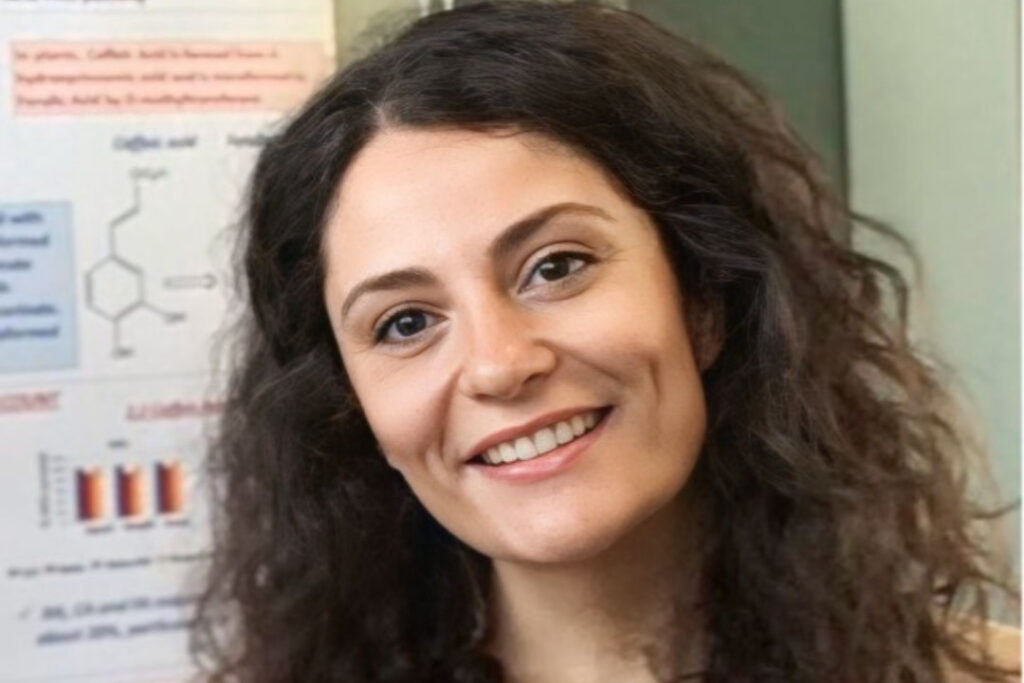Universitá Cattolica del Sacro Cuore, Rome

Dr Fabiola Paciello is an Assistant Professor of Physiology at the Catholic University of the Sacred Heart in Rome, Italy. She has an undergraduate degree in Cognitive Neuroscience from “La Sapienza” University, also in Rome.
She has been part of the Department of Neuroscience (Physiology section) at the Catholic University of the Sacred Heart since 2011, obtaining her PhD in Neurophysiology in 2014 and becoming an Assistant Professor in 2019.
More about Fabiola’s work
Fabiola’s research interests include the impact of hearing loss on cognition and the study of how the regions of the brain which process sound information change over time or in response to stimulation (known as plasticity). She is also interested in understanding the cellular and molecular processes which underlie damage to the inner ear (such as loud noise exposure, ageing or certain medicines which damage the inner ear as a side effect).
She has received national and international grants as Principal Investigator or Co-Principal Investigator from RNID, Alzheimer’s Association, and the Italian Ministry of Health.
Understanding the link between hearing loss and dementia
Read about Fabiola’s research projectFabiola’s approaches to hearing research
Hearing loss is a significant social issue, which can affect a person’s communication abilities, worsening their quality of life and social interactions. This is one reason why people with hearing loss often experience social isolation, which is linked to depression and cognitive decline.
I think that, given the complexity of hearing and its role in our everyday life, we need a multi-faceted approach to drive hearing research forward. This includes increased funding for hearing research, increasing awareness and knowledge of deafness and hearing loss, and encouraging researchers to collaborate across research disciples, such as neuroscience, audiology, psychology, genetics, and engineering.
I’ve always been fascinated by how sensory experiences can profoundly influence how the brain works. Hearing is the most complex sense, but it is often undervalued. It’s important for several aspects of daily life, involved in language, communication, social interactions, cognitive performance, and overall, a good quality of life.
It’s about more than the ability to detect sounds; it allows us to fully interact with the environment, and influences our memory, attention, emotions, and thinking. This complexity both challenges and intellectual stimulation as a focus of research, offering many opportunities to make innovative discoveries and insights.
The strong association between hearing loss and dementia is well-established in clinical settings, but there are still questions we need to answer. How are hearing loss and cognitive decline linked? Are there common biological or psychological processes involved in both conditions? What are the connections in the brain between hearing and cognitive brain structures? Does sound input through hearing impact cognitive function (thinking processes)? By answering these questions, we will gain new information about the complex relationship between hearing loss and cognitive decline.
This could help clinicians to find the people most at risk and possible treatment strategies. Our results could pave the way towards clinical studies to find people who are predisposed to developing dementia and to plan hearing and cognitive rehabilitation strategies for them. This will lead to more effective health solutions and disease prevention which will have a relevant impact on public health.
RNID’s support will allow me to find answers to scientific questions about hearing and hearing loss that we still don’t know they answers to. I’m proud to receive this funding because it means that my research has been recognised as a promising way to improve our knowledge about the link between hearing loss and cognitive decline. It could also pave the way to clinical interventions that could prevent or slow the development of dementia associated with hearing loss, improving the quality of life of affected people.